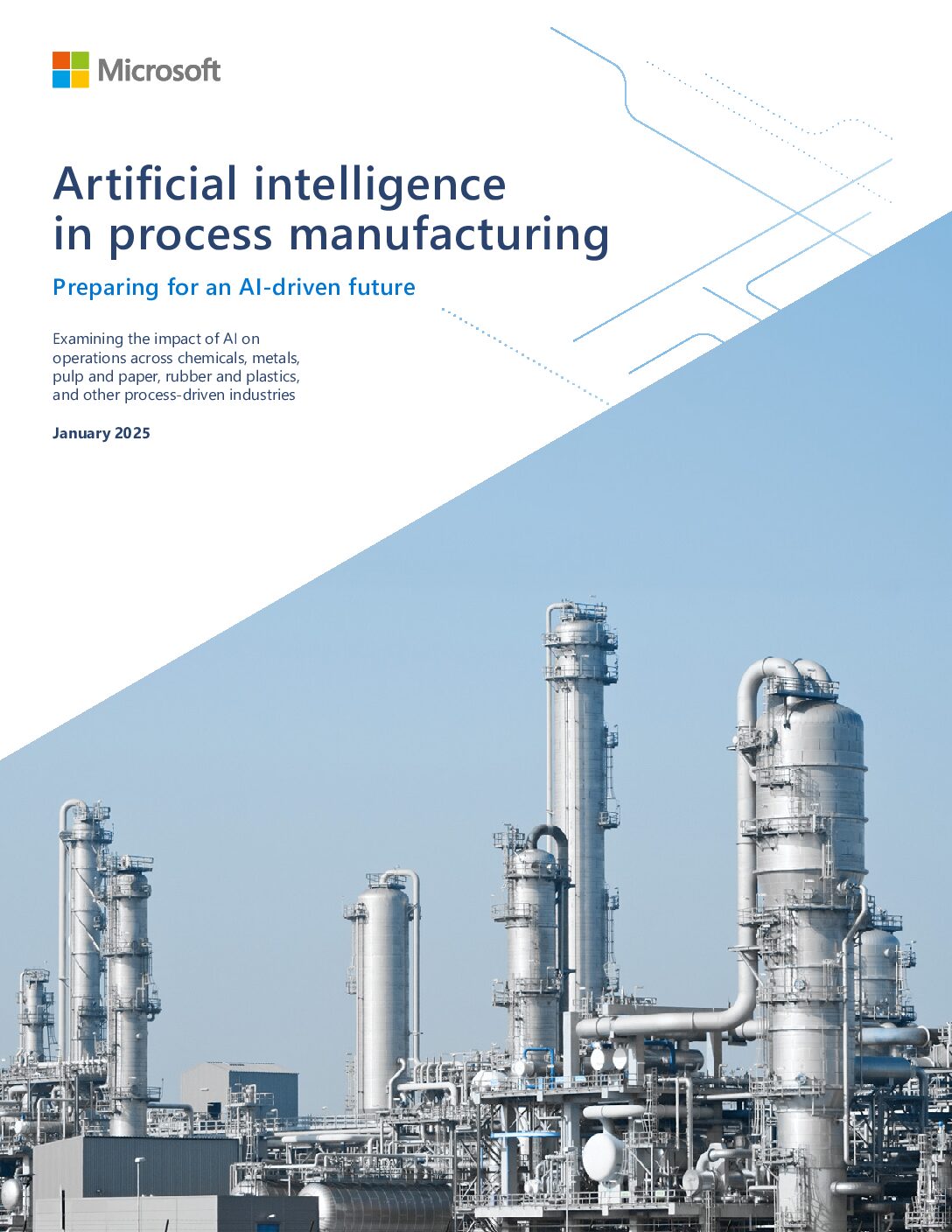Artificial Intelligence (AI) is revolutionizing manufacturing processes across various industries, including chemicals, metals, pulp and paper, rubber, and plastics. This guide explores the impact of AI on operations, highlighting key priorities, challenges, and best practices for successful AI integration.
Key Transformation Priorities
- Operational Efficiency: AI enhances production processes, reduces waste, and optimizes resource utilization. Companies are focusing on integrating technologies like AI and IoT to achieve operational efficiency.
- Revenue Growth: AI accelerates time-to-market for new products and improves product pipeline development. 78% of respondents highlight AI’s role in speeding up R&D processes.
AI Adoption Trends
- Machine Vision and Predictive Maintenance: 74% of companies are trialing AI-based machine vision for quality control, while 73% are exploring predictive maintenance. These technologies are expected to reduce operational costs by 2% over the next three years.
- Generative AI (GenAI): 80% of manufacturers are considering or using GenAI for process optimization, sustainability, and product design. However, not all initiatives are successful, with some pilots failing to show measurable success.
Challenges in AI Integration
- Data Readiness: Ensuring data quality and integration is crucial for effective AI deployment. Companies need to conduct structured data assessments and unify repositories.
- Expertise: Lack of internal expertise can hinder AI adoption. Building multidisciplinary teams that include AI experts, IT personnel, and business stakeholders is essential.
- Security and Complexity: Data security concerns and integration complexities are significant barriers. Nearly half of the respondents indicate that these issues impact their organization’s efforts to adopt AI technologies.
Best Practices for AI Integration
- Identify Business Needs: Focus on specific problems AI can solve, such as reducing downtime, improving quality control, and accelerating product design.
- Embrace Structural Flexibility: Build multidisciplinary teams to drive AI projects, ensuring collaboration between AI specialists and domain experts.
- Get Data in Order: Conduct structured data assessments, unify repositories, and improve data quality. Companies like Bayer and Intertape Polymer Group have successfully adopted centralized platforms to manage data.
- Develop Skills: Use AI to train and upskill employees, enabling them to adopt and benefit from AI-driven innovations effectively.
Case Studies
- Bayer: Successfully implemented AI by addressing data fragmentation and fostering cross-functional collaboration. Bayer’s AI-powered platform bridges communication gaps and enables researchers to efficiently locate and reuse predictive models.
- European Chemicals Company: Achieved significant improvements in time-to-market and demand forecasting through early AI adoption. The company invested in a solid data foundation and built a culture of innovation.
AI is transforming process manufacturing by driving efficiency, enhancing quality control, and fostering innovation. By addressing challenges and following best practices, manufacturers can leverage AI to achieve sustainable growth and competitive advantage.


